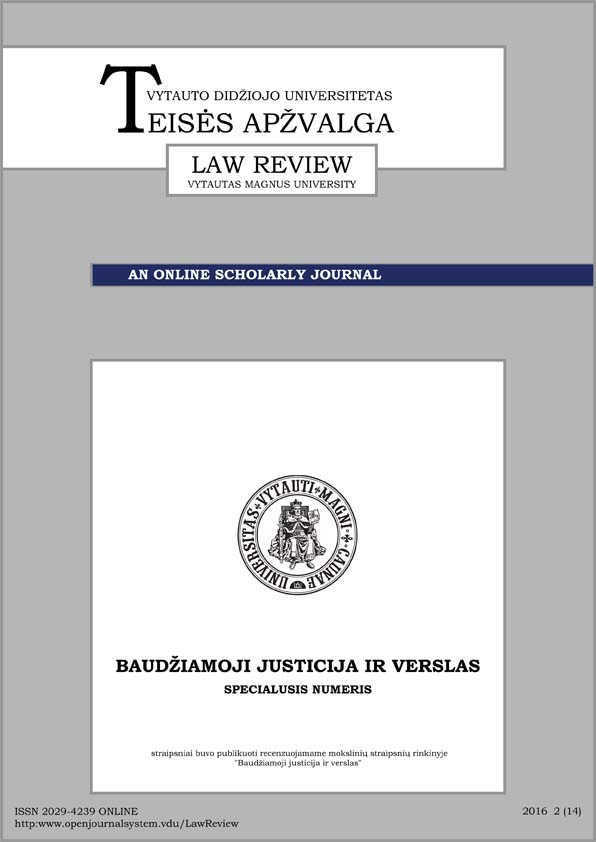Valstybės tarnautojui prilyginamas asmuo kaip nusikalstamų veikų valstybės tarnybai ir viešiesiems interesams subjektas
Person Equivalent to a Civil Servant as a Subject of the Crimes and Misdemeanours Against Civil Service and Public Interests
Author(s): Armanas Abramavičius, Gintaras ŠvedasSubject(s): Law, Constitution, Jurisprudence, Criminal Law
Published by: Vytauto Didžiojo Universitetas
Keywords: Criminal law; Civil servant; Public interests; A person equivalent to a civil servant; Criminal offense subject
Summary/Abstract: Straipsnyje analizuojama valstybės tarnautojui prilyginamo asmens kaip nusikalstamų veikų valstybės tarnybai ir viešiesiems interesams subjekto samprata ir jos interpretavimas Lietuvos Aukščiausiojo Teismo jurisprudencijoje. Article deals with the concept of the person who shall be held equivalent to a civil servant as a subject of the crimes and misdemeanours against civil service and public interests and its interpretation in the jurisprudence of the Supreme Court of Lithuania.Council of Europe Criminal Law Convention on Corruption (1999) has established requirements for states that are related to inter alia the criminalization of corruption in the private sector. Article 7 (“Active bribery in the private sector”) of the Convention determines that “Each Party shall adopt such legislative and other measures as may be necessary to establish as criminal offences under its domestic law, when committed intentionally in the course of business activity, the promising, offering or giving, directly or indirectly, of any undue advantage to any persons who direct or work for, in any capacity, private sector entities, for themselves or for anyone else, for them to act, or refrain from acting, in breach of their duties”, whereas Article 8 (“Passive bribery in the private sector”) of the Convention determines that “Each Party shall adopt such legislative and other measures as may be necessary to establish as criminal offences under its domestic law, when committed intentionally, in the course of business activity, the request or receipt, directly or indirectly, by any persons who direct or work for, in any capacity, private sector entities, of any undue advantage or the promise thereof for themselves or for anyone else, or the acceptance of an offer or a promise of such an advantage, to act or refrain from acting in breach of their duties”. Analogous behaviours were required to be criminalized essentially under Council Framework Decision 2003/568/JHA of 22 July 2003 on combating corruption in the private sector. International and EU law requirements were implemented by determining in the new Criminal Code of Lithuania (further – CC) that not only a civil servant, but also a person equivalent to a civil servant is liable for active bribery, bribery of an intermediary, passive bribery, abuse of office, unlawful registration of rights to an item, failure to perform official duties as crimes and misdemeanours against civil service and public interest. Precisely, according to Article 230 of the CC, “a person who works at any state, n on-state or private body, undertaking or organisation or engages in professional activities and holds appropriate administrative powers or has the right to act on behalf of this body, undertaking or organisation or provides public services shall also be held equivalent to a civil servant”.Supreme Court of Lithuania, interpreting the conception of a person equivalent to a civil servant, requires not only the establishment of formal compliance of position held with the requirements indicated in Article 230 of the CC, but also the establishment of the significance of performed activities for the civil service or public interests.
Journal: Teisės apžvalga
- Issue Year: 2016
- Issue No: 2(14)
- Page Range: 194-209
- Page Count: 16
- Language: Lithuanian

